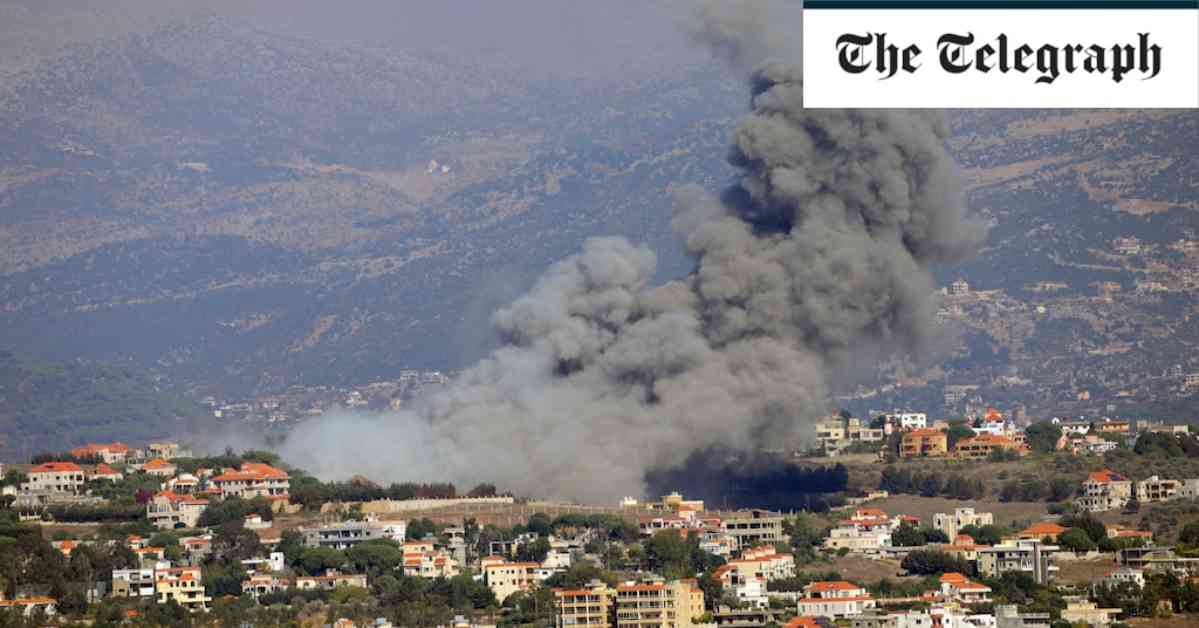A 21-day ceasefire between Israel and Hezbollah along the Israel-Lebanon border is set to begin soon, according to senior officials. This development comes as a joint call from Britain, the United States, and other allies for an immediate truce to allow for negotiations amidst the escalating conflict that has resulted in over 600 deaths in Lebanon in recent days. The ceasefire is expected to prevent a potential Israeli ground operation in Lebanon, which has raised global concerns.
Details of the Ceasefire Agreement
Reports suggest that the ceasefire will last for 21 days along the blue line, which demarcates the border between Lebanon and Israel as well as the Golan Heights. During this period, the parties involved will engage in negotiations towards resolving the conflict that began when Hezbollah launched an attack on October 8. The goal is to reach a comprehensive agreement along the blue line that allows residents to safely return to their homes in both Lebanon and Israel. It is important to note that the ceasefire is anticipated to apply solely to the northern border and will not extend to Gaza.
Latest Updates
Overnight Israeli airstrikes in southern Lebanon resulted in the deaths of four individuals, according to Lebanon’s health authorities. Three people lost their lives in Aita el Shaab, while one Syrian national was killed in Qana, also in southern Lebanon. These casualties underscore the ongoing violence and destruction in the region.
Escalating Conflict Background
The potential ceasefire agreement between Israel and Lebanon comes in the wake of deadly strikes that have claimed the lives of at least 600 people in Lebanon due to Israeli attacks on Hezbollah targets. This operation, known as “Operation Northern Arrows,” commenced on Monday and has caused significant devastation. In response, Hezbollah has launched numerous rockets towards Israel, including one targeting Mossad’s headquarters. While there have been no reported fatalities in Israel, several individuals have sustained injuries from shrapnel.
Efforts to Rescue Britons
With thousands of Britons still stranded in Lebanon, Border Force officers are working tirelessly to assist around 6,000 individuals in evacuating the conflict zone. The situation has prompted discussions about the potential deployment of troops to facilitate the safe evacuation of British citizens. Sir Keir Starmer has not ruled out the deployment of troops on the ground, and additional soldiers have been sent to Cyprus to aid in the evacuation efforts.
Amidst the rising violence between Israel and Hezbollah, the international community, including the UK, US, France, and other allies, has called for an immediate temporary ceasefire in Lebanon. The escalating conflict has been deemed “intolerable,” and there is a pressing need to find a diplomatic resolution that ensures the safety of civilians on both sides of the border. The joint statement released by the White House emphasizes the urgency of ending the conflict and preventing further escalation.
The proposed ceasefire agreement is expected to not only address the Israel-Lebanon conflict but also pave the way for progress in resolving the ongoing situation in Gaza. By providing a temporary pause in hostilities, the ceasefire aims to create an opportunity for diplomatic efforts to gain traction and lead to a peaceful resolution. This development is seen as a crucial step towards de-escalating tensions and achieving stability in the region.
As the situation unfolds, our live coverage will continue to provide updates on the conflict in the Middle East. The impending ceasefire between Israel and Hezbollah marks a significant development in the efforts to restore peace and security along the Israel-Lebanon border. Stay tuned for the latest developments and analysis on this evolving situation.












